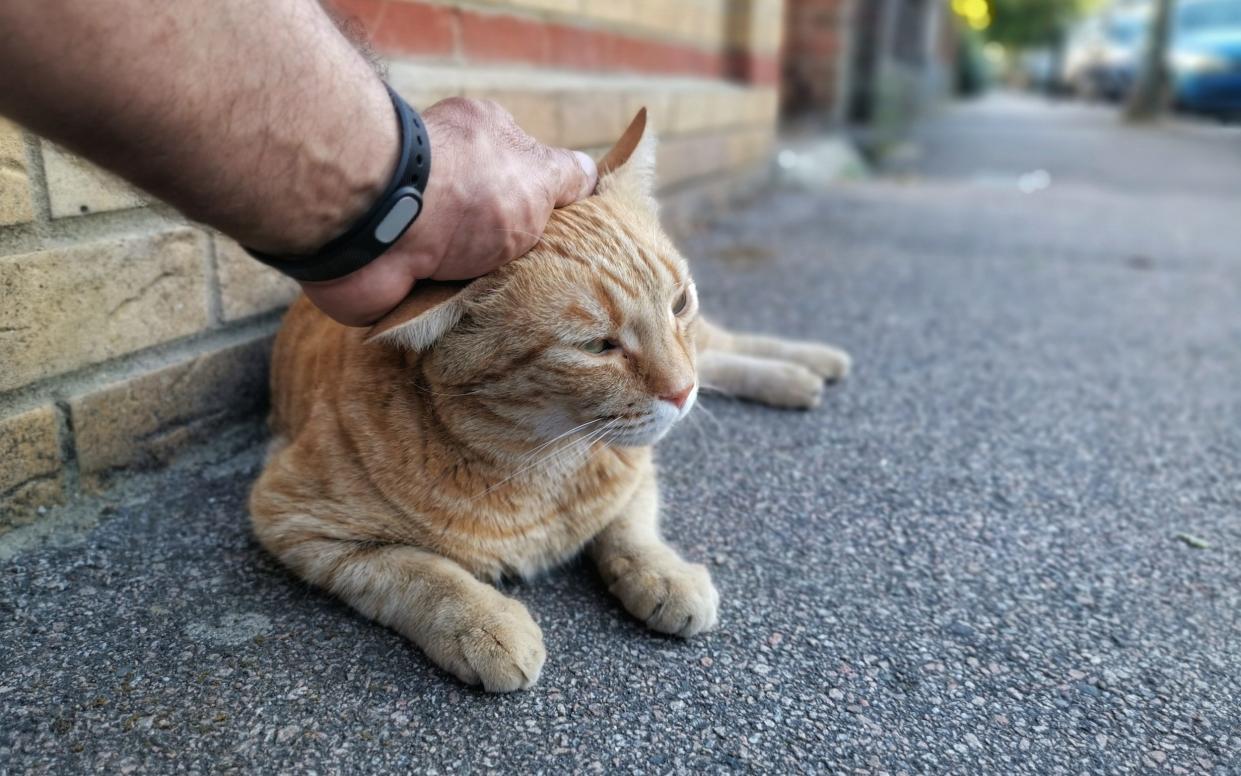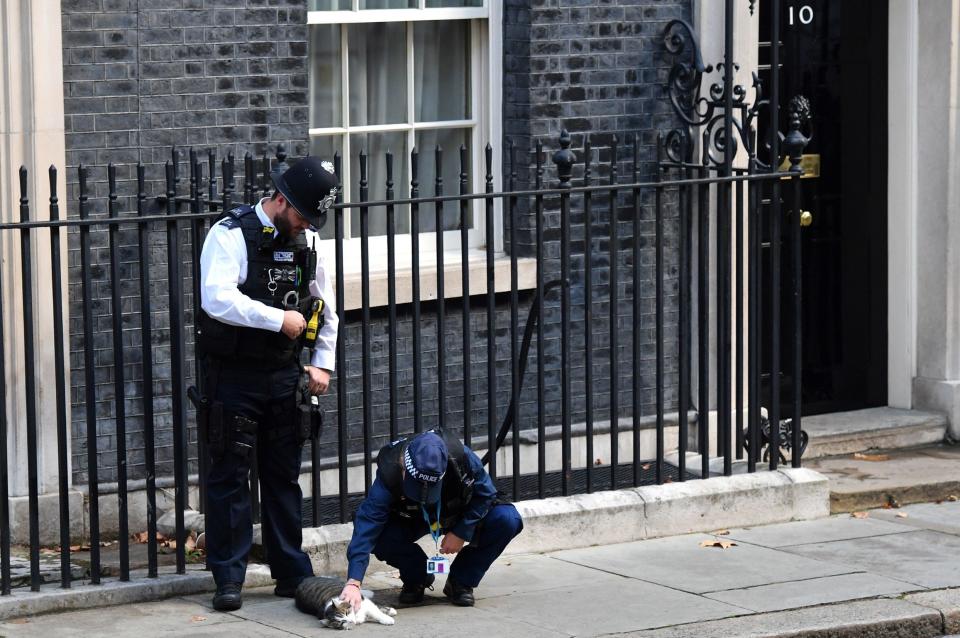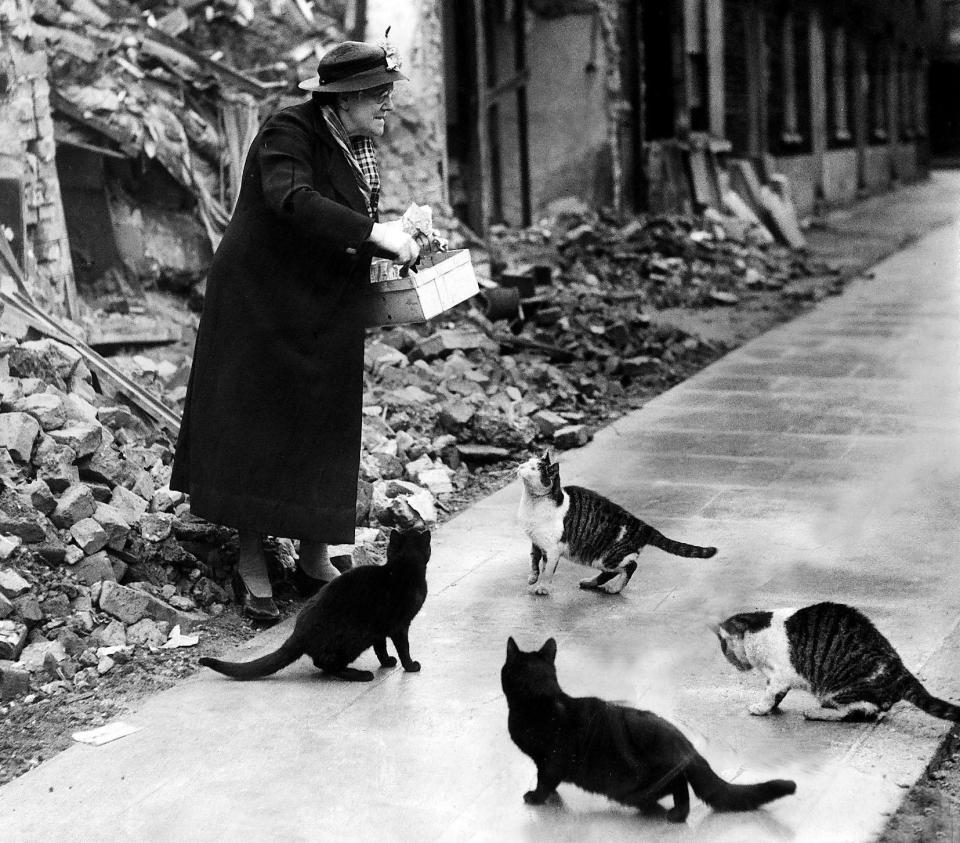Calling ‘here puss’ to a cat in the street may become a criminal offence

Coaxing a cat in the street could become a criminal offence under proposed legislation.
Anyone who attempts to “induce” a cat to accompany them risks falling foul of the Pet Abduction Bill, which is making its way through Parliament.
The proposed law, which is supported by the Government, would make abducting a cat or dog punishable by up to five years in prison, a fine or both.
It follows pressure from animal rights campaigners, 45,000 of whom signed a petition to Parliament last year criticising how the existing law, the Theft Act of 1968, regards pets as personal property with sentences for theft dependent on their monetary value.
The new law would class pets as sentient beings, capable of experiencing distress and emotional trauma.

The draft Pet Abduction Bill states a person may be found guilty of cat abduction if they are “causing or inducing the cat to accompany the person or anyone else” or “causing the cat to be taken”.
It has led to concerns from some on social media that coaxing or grooming a cat in the street could land friendly strangers in court.
Joking about the plans, barrister Joanna Hardy-Susskind told her 68,000 followers on X: “Me, hanging out my garden door shaking a packet of Dreamies, ‘DEFINE INDUCEMENT’.”
Fellow barrister David Green responded, mimicking a judge: “And I am right, am I not, that you were heard saying ‘pusspusspusspusspuss’ in the vicinity of the said cat? I remind you Mrs Hardy-Susskind, you’re under oath.”
The ‘Granny Meow’ difference
However, Anna Firth, the Conservative MP for Southend West, who sponsored the Bill, told Parliament last month that detaining a cat would not be an offence as they are “more free-roaming than dogs”.
“That definition also avoids criminalising well-meaning behaviour, where a person looks after a cat that they thought was stray, abandoned or lost. That is the ‘Granny Meow’ difference, which was much discussed on second reading.”
It is unclear if a stranger or neighbour would have a defence if they coaxed a cat out of goodwill and then kept it, as “taking” a cat would be a crime.
The charity Cats Protection has previously advised owners that they cannot prevent cats being “free spirits”, especially if they introduce another pet into the home, as the cat may “take it upon himself to go, seeking a ‘better place’ that suits his needs”.
The proposed law, which is in its penultimate stage in the Commons before entering the Lords, offers protection to those who take a cat from someone they previously lived with, prior to getting the pet.

Last month in the Commons, Sir Edward Leigh, the Conservative former minister, said he feared that “very kindly old ladies” would be prosecuted for taking in stray cats, but Ms Firth said there was “a defence of reasonable excuse”.
Steve Barclay, the Environment Secretary, has backed the Bill, saying it “will recognise the severity of this shocking crime and should act as a deterrent to anyone considering stealing a dog or cat”.
Figures revealed by the Pet Theft Taskforce, which was established by the Government in 2021, suggest that around 2,000 dog thefts and more than 400 cat thefts were reported to police in 2020 alone. Around a quarter of adults in the UK own a dog or cat.
A spokesman for the Department for Environment, Food and Rural Affairs said: “The Pet Abduction Bill is clearly not intended to criminalise innocent, well-meaning behaviour involving wandering cats. That includes when a cat freely visits a number of households in a neighbourhood.
“We have demonstrated our support for the Bill in recognising the severity of pet theft and it should act as a deterrent to anyone considering unlawfully taking a dog or cat.”

